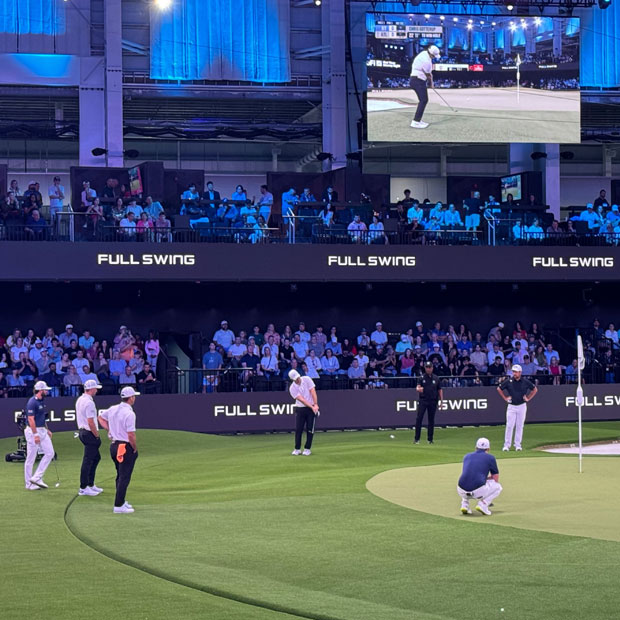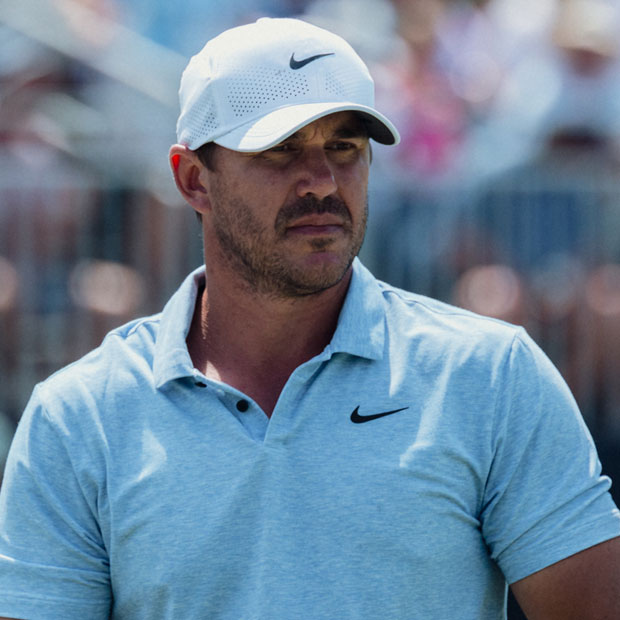A Brief History of USA Ryder Cup Failure in Europe
The American team in Rome can end a three-decade drought full of recriminations, finger-pointing, and failure


It has been 30 years since Team USA won a Ryder Cup in Europe. You know that. It’s no secret. Across the pond, the Americans have faltered on six consecutive occasions since Tom Watson’s (no, not that second time) squad squeaked out a 15-13 victory at The Belfry in 1993. In 2006, the Americans had their doors blown off by nine points. In 2014, with Watson again at the helm, the team was so unprepared and poorly managed that it lost to Europe by five points and spurred the creation of the now much mocked “task force.” The task force did not stop the bleeding. In 2018, Team USA went to Paris and lost by seven. But the numbers alone do not quite illustrate just how comically disastrous each European Ryder Cup experience has been for the Americans. Each edition has been marred by infighting and curious decision making. So, before the action kicks off in Rome and the (seemingly) least dysfunctional American team in a while tries to break the streak, let’s take a spin through some of the low and even lower points of Team USA’s misadventures in Europe.
2018
Europe wins 17.5-10.5
The United States was favored heading into Paris and jumped out to a 3-1 lead on Friday morning. Then they were shut out in the afternoon session and never recovered. The only American pairing that lost in that Friday morning session? Tiger Woods and Patrick Reed. Reed, obviously responded to that loss and his subsequent benching in both foursomes sessions with grace…oh? What’s that?
Ah, right. Reed publicly torched everybody in the aftermath of the loss.
He complained about not being paired with Jordan Speith, his partner at the 2014 Ryder Cup: “The issue’s obviously with Jordan not wanting to play with me,” Reed told the New York Times, “I don’t have any issue with Jordan.”
In that same interview, he complained about captain Jim Furyk: “For somebody as successful in the Ryder Cup as I am, I don’t think it’s smart to sit me twice.”
Somebody with the Twitter handle @justinekreed even got in on the action. Healthy, normal stuff.

Despite a win in singles, these antics effectively scuttled Reed’s chances of making future Ryder Cup teams. It should also be mentioned that Phil Mickelson was on this team and went 0-2, losing a foursomes match with Bryson DeChambeau 5&4 and his singles match against Francesco Molinari 4&2. He could not find the club face. Probably not the best choices by the vaunted task force.
2014
Europe wins 16.5-11.5
Oh boy, this one was a mess. As mentioned, 65 year-old Tom Watson was brought in by the PGA of America’s Ted Bishop to captain the team because he…was a big name and was popular in Scotland, where he had won four of his five Open Championships. Watson seemed to believe that he would cruise to victory by being a Great Man and motivating his players to simply play better. Instead, he was pantsed by European captain Paul McGinley, a relatively unheralded player who paid attention to every detail.
McGinley worked with the mercurial youngster Victor Dubuisson and paired him in both foursomes sessions with the veteran Graeme McDowell. (They won both matches that they played together.) As a carrot, he gave McDowell the honored first spot in singles and neglected to tell McDowell that the move had been cleared with Rory McIlroy, who had won two majors that year and was the clear ace on Team Europe. He managed his team’s personalities expertly.
Watson, on the other hand, tried to use tough love to motivate his guys and…it did not go well. Facing a 6-10 deficit on Saturday night, Watson got up in front of his players, their wives, girlfriends, and caddies, and insulted them. He said they stunk at foursomes. When they gave him a replica of the Ryder Cup that had been signed by every member of the team, he said that it meant nothing to him if they didn’t win the real Ryder Cup the next day. They didn’t, obviously. And according to Bob Harig, Watson responded by telling the players that lost their singles matches that they should have played better.
In a press conference after Sunday singles, with Watson in the room, Mickelson said this: “Nobody here was in [on] any decision…Unfortunately, we have strayed from a winning formula in 2008 for the last three Ryder Cups, and we need to consider maybe getting back to that formula that helped us play our best.”

2010
Europe wins 14.5-13.5
Rain defined the 2010 edition of the Ryder Cup, with downpours in southern Wales growing so intense that the singles session had to be postponed until Monday. The event came down to the anchor match, which McDowell won against Hunter Mahan. But the lasting memory from the competition will be the goofy and ineffective rain suits that Team USA wore for part of the weekend.

American captain Corey Pavin and his wife, Lisa, met with the company Sun Mountain 20 times to design the suits. The couple insisted that player names be stitched into the backs of the jackets, which ended up making the waterproof garments not so waterproof. With the team’s official gear leaking, Pavin got a batch of replacement rain suits from the merch tent. Those weren’t quite enough to help the Americans break their streak of European failures.
2006
Europe wins 18.5-9.5
To try and understand this drubbing, let’s go through the team that Tom Lehman brought with him to the K Club. Remember that at this point in time, both teams were only allowed two captain’s picks.
Tiger Woods
Phil Mickelson
Ok, we’re doing great…
Jim Furyk
Yup, sounds about right…
David Toms
Chris DiMarco
Zach Johnson
Stewart Cink
Alright, not so bad for 2006, I guess…
Chad Campbell
Scott Verplank
Sort of a top-heavy roster we’ve got here, huh?
Vaughn Taylor
J.J. Henry
Brett Wetterich
Oh…no…
2002
Europe wins 15.5-12.5
At the time, this was considered a blowout. No team had won the Ryder Cup by more than two points since 1985.
This edition of the Ryder Cup was originally slated for 2001, but was delayed for a year by the September 11th attacks. The teams that were set in 2001 would remain for the 2002 event, but even in September 2001, many members of Team USA were in their forties and leaving their primes. Mark Calcavecchia, Hal Sutton, Paul Azinger, and Scott Hoch all saw their world rankings drop substantially during the 2002 season. Their lack of form would cost the Americans.
Going into Sunday singles, the teams were knotted at eight points apiece. Of the aforementioned players, only Azinger would be able to get on the board that day—he halved his match against Niclas Fasth. Hoch and Calcavecchia would both drop their matches 5&4 while Sutton lost 4&3. Those three points would be the margin of victory for Team Europe.

1997
Europe wins 14.5-13.5
This one was close! The Americans faced a five-point deficit heading into the singles and managed to claw back. Fred Couples nearly Ames-ed Ian Woosnam in the first match on Sunday, winning 8&7, and Tom Lehman dispatched poor Ignacio Garrido 7&6. In what would be the start of another confusing trend, Woods would be one of just three Americans to lose in singles.
It’s hard to look at this edition of the Ryder Cup and not feel like a growing curse has been attached to Team USA since the nineties. Once, a deficit on Saturday night would turn into a stern fight on Sunday. In the 30 years since, on European soil at least, that hasn’t really been the case. The Americans won the 2021 Ryder Cup by 10 points, the largest margin of victory since the competition was expanded to include Continental Europe. But weird things seem to happen on foreign turf, and then it has quickly turned to recriminations. Is the unbeatable team really so invulnerable? Or might there be some holes in its rain suit?
Leave a comment or start a discussion
Engage in our content with thousands of other Fried Egg Golf Club Members
Engage in our content with thousands of other Fried Egg Golf Members
Get full access to exclusive benefits from Fried Egg Golf
- Member-only content
- Community discussions forums
- Member-only experiences and early access to events










Leave a comment or start a discussion
Lorem ipsum dolor sit amet, consectetur adipiscing elit. Suspendisse varius enim in eros elementum tristique. Duis cursus, mi quis viverra ornare, eros dolor interdum nulla, ut commodo diam libero vitae erat. Aenean faucibus nibh et justo cursus id rutrum lorem imperdiet. Nunc ut sem vitae risus tristique posuere. uis cursus, mi quis viverra ornare, eros dolor interdum nulla, ut commodo diam libero vitae erat. Aenean faucibus nibh et justo cursus id rutrum lorem imperdiet. Nunc ut sem vitae risus tristique posuere.